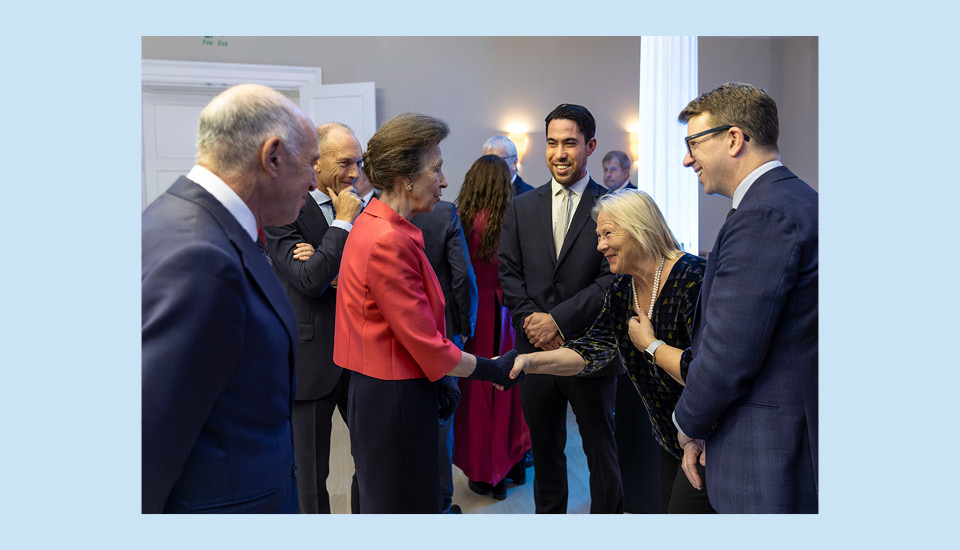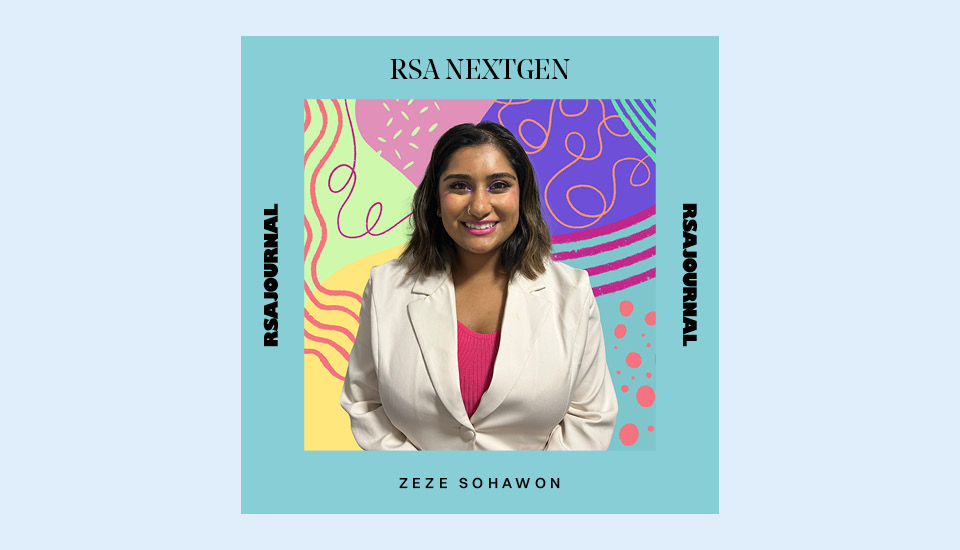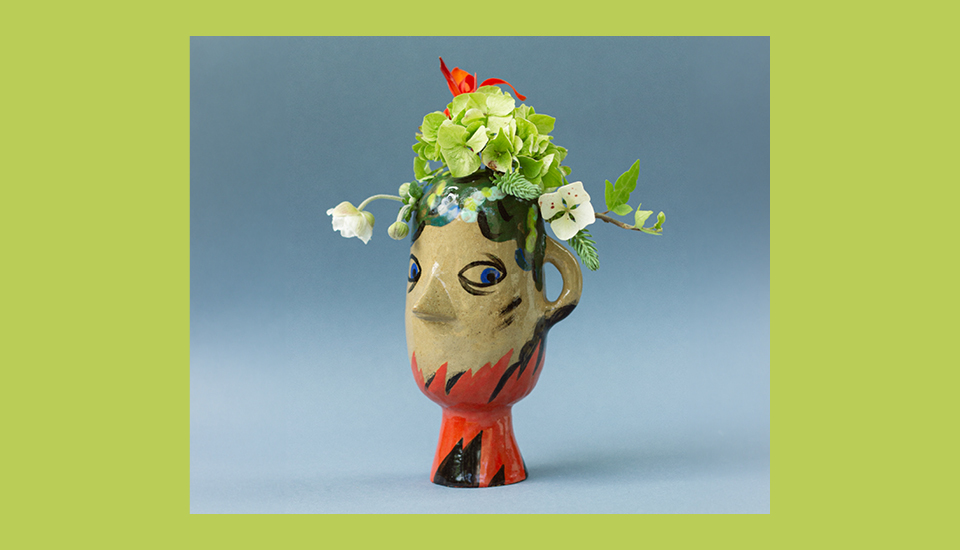Vuslat Dogan Sabanci FRSA argues that we cannot fix our social systems before we fix our connections to ourselves, to each other and nature, and that the first step required is to listen generously.
The Covid-19 pandemic has brought into stark relief significant and urgent global challenges that have been long simmering in the background. Worsening climate change has already disrupted life for millions and income inequality is widening as unemployment is rising. Political systems across the world are signaling an alarming increase in exclusionary, extremist policies. Race, gender and more broadly, identity-based violence is rampant; one in three women are subject to physical or sexual violence.

It is hardly surprising that we are also facing a massive mental health crisis. Nearly 1 billion people suffer from mental health issues annually. Covid-19 has resulted in further escalating mental health issues and suicide, with a significant number (22% in the UK) stating that their mental health is lower now than pre-pandemic. Japan has heartbreakingly just appointed a ‘Minister of Loneliness’ to tackle social isolation.
None of these issues exist in isolation. Indeed, they are integrally related and, I believe, some form of otherization – whether it is of other human beings, of the self or of nature – is the root cause of it all. We see a world rife with seemingly insurmountable challenges. As humans we try to make sense of this chaotic world by mistakenly compartmentalizing, labelling and, too often, seeking scapegoats. We cannot solve these massive global and personal challenges without fixing our broken systems. Yet that can only be done when we restore our connections to ourselves, each other and nature. To do so we must take the fundamental first step to truly listen with generosity.
From the Heart’s Ear
As a former publisher, I worked diligently to champion and expand the space for freedom of expression. Initially, I thought the pursuit of freedom was only about fighting for fundamental rights and liberties. In the later phases of my career, however, I understood that while the fight for rights is indispensable on the path to freedom and a better society, it is not enough. True freedom necessitates not only the rights for free speech but also the right to be heard and acknowledged.
My journey was prompted by exceptional circumstances: the troublesome effects of polarization had seeped into every segment of Turkish society, a trend that unfortunately would be repeated in the world over in subsequent years. Journalism had become like walking along a thin tightrope. All stakeholders were demanding news outlets to explicitly pick sides and declare loyalties. We were all becoming prisoners of our own world views. During this period I was overwhelmed with frustration but yet a bubbling curiosity was awakened; I wanted to travel across the river, to sit with those we deemed ‘the Other’ and to listen to them with no agenda.
“Listening with your heart’s ear” is an exquisite Turkish expression, which emphasizes not just the physical act of listening but also opening your heart to hear the other beyond words. I started by listening to women from completely different backgrounds, geographies, cultures and life experiences with eagerness to genuinely get to know them. I tried to listen to each person beyond surface identities and limiting stereotypes to truly hear their personal stories.
As I got a taste of the aliveness that listening brought into my life, I set out to hear more people who were even further from my comfort zone: brothel owners in Anatolia, people who chose religiously conservative lifestyles, women who have been exposed to domestic violence as well as murderers who committed femicide. Their vastly different life stories and disparate perspectives compelled me to not just listen to others with greater empathy but also sparked an internal journey, to explore and confront ‘the others’ within myself.
One of my most transformative experiences was meeting Zeynep, who had a challenging life, beginning with the sadly familiar story of being abandoned as a child and extending to her current life at a women's shelter. Although I had heard similar stories before, something extraordinary happened this time.
As Zeynep spoke, this petite and meek looking woman morphed into a giant, as I shrank into a whisper of myself. It was as if I was not there to help her, but rather, as if I was there to borrow courage from her resilience. Zeynep’s words transported me far beyond her own story, to the depths of my inner existence that I may never have discovered on my own. Though our stories were wildly different, there were many familiar human experiences and emotions that we shared, especially the profound love, earnest hopes and deep concern that we felt as mothers for our children.
It took a while for me to comprehend why this particular experience of listening was so exceptional. That evening, in that small room, I was listening from a different place, from my heart’s ear. As I would later realize, listening is a muscle, and I had been toning that muscle for some time. I was ready to listen to Zeynep generously because I listened not with a desire to resolve an immediate problem but just to hear her story.
Generous Listening: A Gateway to Personal Transformation and Social Healing
I am a firm believer that change begins within. As such, rather than trying to repair existing systems or other people, first we must identify, listen to, acknowledge and own our own broken parts. Generous listening is to hear with the heart as well as the mind, which allows us to deepen our connections to ourselves and each other. It lets us treat ourselves with generosity and compassion, allowing us to extend the same to all humans and life forms. As we embrace our own vulnerabilities, and become authentic to ourselves, we become empowered to be wholly present as human beings, free of titles or labels. As such, generous listening is a gateway to a new understanding of power, levelling the playing field between those ‘in power’ and those ‘in need’.
Vuslat Foundation was born from this humble desire to share generous listening, which transformed my own life, with others. We believe that in these subtle yet profound ways generous listening can serve as the basis of personal and social change. It is not just an abstract concept but an effective tool that can fundamentally transform our way of connecting. While practicing generous listening might require personal intent and effort, there are easy ways to tone the muscle of listening. As such, generous listening is also a potent change agent that can be implemented broadly. It is accessible, as the ability is innate to each one of us, scalable, as it can be rapidly and efficiently shared and, flexible, as it is applicable to any setting.
Like individuals, institutions can also benefit from generous listening. Institutions at the forefront of innovative change, like the RSA, can lead the way by generously listening to themselves to acknowledge their shortcomings as well as to own their power. As generous listening transforms individuals and institutions they will become equal participants in finding new opportunities for development-oriented co-creation. This mutually internalized equality will upend calcified power dynamics, allowing for more fluid processes and imaginative solutions to emerge. Currently, billions around the world feel alienated by systems that do not acknowledge them. As institutions evolve they can create more space for listening. Deliberative processes and citizen participation are vital to finding inclusive remedies for systemic problems and listening is at their core.
Whether as individuals or institutions we often seek easy answers for the challenges facing us personally and collectively. But generous listening can give us the opportunity to pause, understand and engage our vast emotional intelligence as well as our minds to find solutions. It is then that lasting and inclusive change will truly be possible.
Vuslat worked at Hürriyet Publishing, Turkey's leading newspaper group, between 1996-2018, and is currently working on launching Vuslat Foundation, a global initiative that fosters a deeper appreciation of listening to oneself, to others and to nature as the essential element of all our connections. She is on the board of directors of Doğan Group of Companies, Hürriyet Emlak and Hepsiburada, is Vice President of the Aydın Doğan Foundation, a lifetime honorary member of the board of International Press Institute (IPI) and a member of Columbia University Global Leadership Council.
Related articles
-
RSA House 250th anniversary: a gala to remember
Feature
RSA House turned 250 in 2024. On 17 October, RSA Fellows and friends attended a fundraising gala dinner at our historic home to celebrate this landmark anniversary.
-
RSA NextGen: ZeZe Sohawon
RSA NextGen
Zaynab ‘ZeZe’ Sohawon, a youth mental health advocate, speaks to us about her ambitions, passions and inspirations in our regular Nextgen series of interviews with young Fellows.
-
Under the weather
Feature
Judith Anderson
The climate emergency is intensifying and young people are bearing the emotional brunt of a crisis they didn’t create. Their anxiety and outrage demand our understanding – and urgent support.




Join the discussion
Comments
Please login to post a comment or reply
Don't have an account? Click here to register.
“Listening from the heart’s ear” is deeply rooted, in Anatolia’a wisdom. It has many facets in social relationships. To bring it to the attention of contemporary communities is an effort that well deserves appreciation.
Great project to help the human kind, who are actually social beings. Especially the pandemic has been a terrible blow to social needs. And now, people need more than ever, to be listened to genuinely and open-heartedly. There are so many countries in the world who is yet unaware of the huge mental health crisis; Turkey being one of them. I feel like this is kind of a first-aid help to the suffering human kind: lonely and depressed! We need heart-to-heart connection for humans and nature as well. I think listening can heal the broken connections between people and between humans and nature. Thank you.